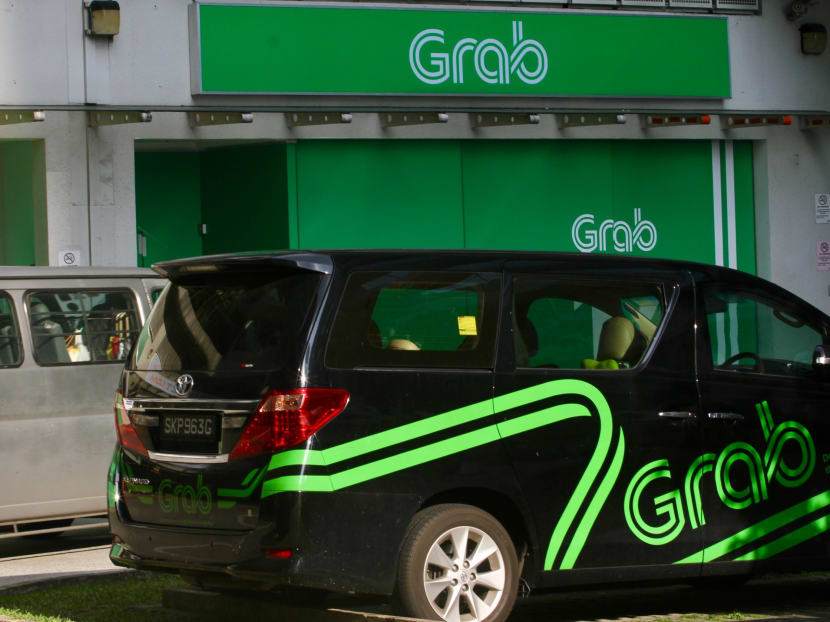‘Numerous complaints’ about Grab over increased fares and commission fees, says competition watchdog
SINGAPORE — The Competition and Consumer Commission of Singapore’s (CCCS) investigation into the merger between Grab and Uber found that the former had, in effect, raised fares and commission rates here following its acquisition of Uber’s regional business, with “numerous complaints” received from riders and drivers.

GrabCar offices at Midview City in Sin Ming, on Thursday, July 5, 2018. The recent merger between Grab and Uber was seen by the Competition and Consumer Commission of Singapore as a breach of anti-trust laws.
SINGAPORE — The Competition and Consumer Commission of Singapore’s (CCCS) investigation into the merger between Grab and Uber found that the former had, in effect, raised fares and commission rates here following its acquisition of Uber’s regional business, with “numerous complaints” received from riders and drivers.
The competition watchdog said in a media release on Thursday (July 5) that it also found evidence that Uber would not have exited the Singapore market in the “near to medium term” if not for the deal. The ride-hailing firm would either have continued its operations or merged its South-east Asian businesses with other potential buyers, and not its competitors.
It also noted that Uber had entered into an agreement with ComfortDelGro to introduce UberFlash – a product providing riders with the closest available ride, either a private hire car or ComfortDelGro taxi – to compete with Grab. The transaction was only withdrawn after the merger, said the watchdog.
“Without sufficient competition post-Transaction, Grab would be able to raise fares for riders and commission rates for drivers, lower the quality of its services and reduce innovating its product offerings,” said the CCCS, which noted that Grab and Uber’s customers and competitors had also raised such concerns.
Many complaints were also lodged by riders and drivers on the increase in “effective price post-transaction”, which translated to a dip in quantum and frequency of driver promotions and incentives. This reflected Grab’s ability to increase prices after the merger, said the CCCS.
Taxi booking services are an “insufficient competitive constraint” to the ride-sharing firms as they had less than 15 per cent of the market share, noted CCCS. Barriers to entry and expansion in the ride-hailing platforms is also high due to “strong network effects”, as Grab had imposed exclusivity obligations on taxi companies, car rental firms, and some of its drivers.
This would hinder access to drivers and vehicles for potential rival firms if CCCS does not intervene, said the watchdog.
As a result, any new player would likely have to fork out significant upfront capital in order to attract drivers and riders through driver incentive schemes and rider promotions. In addition, it would have to acquire a fleet of cars and hire a pool of drivers, as well as work out partnerships with taxi firms.
The CCCS said: “In this regard, potential new entrants have provided feedback to CCCS that without any intervention from CCCS, it would be difficult to attain a sufficient network of drivers and riders to provide a satisfactory product and experience to both drivers and riders so as to compete effectively against Grab.”
The competition watchdog also noted the high capital cost of building a car rental network of sufficient scale, and the higher cost of maintaining chauffeured private hire cars (CPHC) as compared with normal rental cars. This would hinder the competitiveness and expansion plans for the CPHC firms if they do not work with a ride-hailing platform.
The merger would place Grab in a “strong position to put in place exclusive arrangements” with the CPHC renal firms and drivers who rent from them in order to “reinforce its position in the ride-hailing platform services market”, said the CCCS.
It also noted that Grab and Uber had not been able to prove that the merger “gives rise to efficiencies that would outweigh the harm to competition”.









